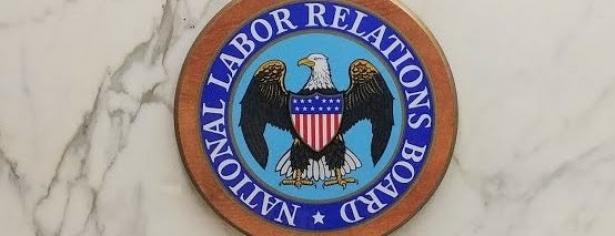Labor unions will likely face more litigation from dissatisfied workers and right-to-work groups under a new directive issued by the NLRB.
The National Labor Relations Board on Sept. 14 ordered field offices staff to start pursuing charges against unions for ‘negligent’ behavior such as losing an employees’ complaint or not returning phone calls when the worker has questions, according to an internal directive obtained by Bloomberg Law.
The change in how the board interprets federal labor law means unions can now be prosecuted for a range of careless and unprofessional behavior that was traditionally viewed as harmless error. The move is a shift of the agency’s focus and resources to include prosecution of unions in those types of cases, in addition to other issues the board has jurisdiction over, according to sources familiar with NLRB processes. They spoke on condition of anonymity because the memo hasn’t been publicly released.
The board’s new standard essentially obligates unions to a greater “duty of fair representation” by requiring them to show and prove that they have reasonable tracking systems and make meaningful efforts to update workers who file a grievance against their employer.
“Going forward, Regions are directed to apply” those principles and “issue a complaint where appropriate,” the board said in a memo from top prosecutor Peter Robb’s (R) office. “The General Counsel is aware that the above-described approaches may be inconsistent with the way the Board and Regional Directors have historically interpreted duty of fair representation law.”
Robb’s directive is in line with other policy changes that increase the pressure on labor unions in terms of recruitment, sustaining membership, and delivering benefits for members. The labor movement has seen a decadeslong and continuing decline in union membership and political clout. Most of the country’s largest unions have recently doubled down on recruiting and keeping members in the wake of a U.S. Supreme Court decision that most observers describe as a serious threat to the future of American unions.
The NLRB didn’t immediately respond to a request for comments.
New Standards
The NLRB adjudicates the National Labor Relations Act, which bars employers from interfering in union and organizing activity. The NLRA also restricts in various ways what a union can do to recruit members and carry out its representation of the employees.
One obligation on unions is a “duty of fair representation,” which requires them to represent each worker in “good faith” and without discrimination.
The board’s historical practice, generally speaking, has been to accept a “mere negligence” defense in cases where a union loses track or otherwise forgets to pursue a members’ grievance. It’s done the same in cases alleging the union wasn’t sufficiently communicative with the complaining worker.
Former NLRB chairman William Gould (D) told Bloomberg Law one main reason for that approach is that most union officials aren’t trained attorneys and might therefore misunderstand with the “fair representation” duty obligates them to do in different circumstances.
In Robb’s view, a failure to respond to phone calls or emails, and losing or forgetting a worker’s grievance is “more than mere negligence,” the general counsel’s office wrote. Such acts instead rise to the level of “gross negligence.” Unions must have a “reasonable excuse or meaningful explanation” for a failure to respond, and “reasonable procedures or systems” to track grievances in order to avoid being held liable, the board said.
More Litigation Against Unions Expected
“I think this makes sense for a couple reasons,” James Plunkett, a lawyer at Ogletree Deakins in Washington and former labor policy director at the Chamber of Commerce, told Bloomberg Law Sept. 17. “First, achieving consistency across regions in terms of applying the law makes sense, from a general perspective.”
“Second is that it’s reasonable for the GC to say the ‘dog ate my homework’ excuse is not going to fly anymore,” Plunkett said.
He added that the directive would increase “transparency and accountability.” He declined to comment further when asked whether Robb could’ve issued a public general counsel’s memorandum or advice document to provide unions and labor attorneys guidance on how to comply.
Former NLRB chairman William Gould (D) told Bloomberg Law the new standard is a “stretch beyond” what the Supreme Court has said constitutes a breach of the fair representation duty.
“Equating the failure to return phone calls in and of itself with more than ‘mere negligence’ is a stretch, particularly where the representative isn’t a full time union official,” Gould said. Union stewards and other leadership often work full time along with the membership and have a portion of their working hours devoted to union business.
Gould said there will almost certainly be an increase in these sorts of cases against unions.
“The practical effect may be twofold: one good part is that unions might be more energetic and careful, but the bad part is that it may ensnare the unwary,” he said.
To read more from Daily Labor Report® please


Spread the word